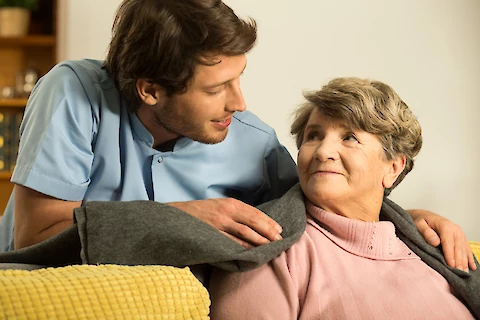
Caring for a senior loved one diagnosed with frontotemporal dementia (FTD) can be a challenging and emotional journey. As their cognitive abilities and behavior change, you need to ensure their safety and well-being. If your senior relative is currently living alone or is left unattended for long periods, you may be worried about their ability to manage daily life independently. Explore the key signs that indicate it's time for your family member to have a caregiver or move in with a loved one.
Signs That a Senior Loved One Shouldn't Be Home Alone
In the journey of caring for a senior with frontotemporal dementia, it's crucial to monitor their well-being and identify changes that may warrant additional support. These signs might include:
Signs From the Person
1. Increased confusion or disorientation can be one of the first signs that your senior loved one is struggling to live alone. They may have difficulty remembering familiar places and people or struggle to complete daily tasks, such as preparing meals or managing finances.
2. Another indicator is that your loved one may need support for changes in their personality or behavior. Frontotemporal dementia often affects a person's emotional and social functioning, which can lead to increased agitation, aggression, or inappropriate social behavior. This can make it difficult for seniors to maintain healthy relationships and may cause problems with neighbors or authorities.
3. The decline in personal hygiene and self-care is another warning sign that your loved one may need assistance. Neglecting to bathe, changing clothes, or maintaining proper nutrition are common problems for those living with FTD. This can lead to health issues and further decrease their quality of life.
4. Lastly, difficulty with mobility or balance can increase the risk of falls or accidents in the home. Struggling to navigate through their living space safely should raise concerns about their ability to live alone.
Signs From Their Home
5. Unexplained damage or disarray in the home is a clear sign that something is not right. Broken appliances, furniture, or evidence of accidents such as burns or spills may indicate that your senior loved one is struggling to manage their living environment.
6. Neglected household chores and maintenance can also suggest that a person with FTD is no longer able to live alone safely. Piles of unwashed dishes, laundry, or an overgrown yard can be indicative of their inability to keep up with the demands of independent living.
7. Unsafe living conditions are another red flag that should not be ignored. Expired or spoiled food in the refrigerator or medications not being taken as prescribed can put your loved one's health at risk and may lead to more serious consequences.
8. Finally, if your senior relative is prone to wandering or getting lost, this can put their safety at risk. Leaving the house without a clear purpose or destination, or being unable to find their way back home, are signs that they may need more supervision and support.
What to Do if You See the Signs
If you've noticed any of these signs, explore options for ensuring your senior loved one's safety and well-being. Hiring a professional caregiver can provide in-home care tailored to their needs, allowing them to maintain some independence while ensuring they receive the support they require.
Alternatively, moving in with a family member can provide a familiar and supportive environment, sharing the responsibility of caregiving among family members. A combination of both options may also be ideal, balancing independence and safety while ensuring consistent care.
Select Senior Helpers Santa Rosa Wine Country to Help With the Daily Care of Your Senior Loved One
In conclusion, recognizing the signs that a senior with frontotemporal dementia should no longer be living alone is vital to their safety and quality of life. Whether it's hiring a professional caregiver or moving in with a family member, taking action to address their needs is crucial.
If you live in Santa Rosa, Ukiah, Sebastopol, or Rohnert Park, CA, and are concerned about a senior relative with FTD living alone, contact Senior Helpers Santa Rosa Wine Country to discuss care options and find the best solution for your loved one. Our team of experienced professionals is here to help you navigate this challenging journey and ensure your senior loved one receives the care they deserve.